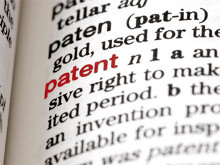Supreme Court rules for Limelight over Akamai in key patent test

You may not know much about the patent lawsuit of Limelight vs. Akamai, but a recent Supreme Court of the United States (SCOTUS) decision will influence how patent lawsuits and video is delivered over the Internet for years to come..

The case, which began in 2006, started when Akamai, a major content delivery network (CDN), sued rival Limelight for violating its patented content delivery process.
What made this case interesting is that Akamai had not accused Limelight of copying its entire patented process. Instead, Akamai claimed that Limelight was in violation because it had copied a few, but vital, steps in Akamai’s delivery process. Specifically, Akamai argued that Limelight was guilty of "induced infringement." With this, Limelight was accused of duplicating at least one of the patent-protected steps while encouraging other parties to duplicate other parts of the process.
Now that may seem to you like a no-brainer. You either violate a patent or you don't, regardless of what others may do, but in patent-case history it's quite possible for someone to violate a patent by only copying part of a process.
Indeed, some industries depend upon this interpretation of patent law, The Pharmaceutical Research and Manufacturers of America, which includes all the leading drug manufacturers, supported Akamai. They feared that some of their drug patents could be knocked out if competitors could break up parts of a patented process. Other companies, mostly technology businesses, feared that a win for Akamai would open the door for more patent troll lawsuits.
In the last trial, before the case reached SCOTUS, the Court of Appeals which specializes in patent litigation ruled in Akamai's favor. That Court ruled: "If a party has knowingly induced others to commit the acts necessary to infringe the plaintiff’s patent and those others commit those acts, there is no reason to immunize the inducer from liability for indirect infringement simply because the parties have structured their conduct so that no single defendant has committed all the acts necessary to give rise to liability for direct infringement."
SCOTUS disagreed completely. "Limelight would be liable for inducing infringement if the patentee could show that (1) Limelight knew of Akamai’s patent, (2) it performed all but one of the steps of the method claimed in the patent, (3) it induced the content providers to perform the final step of the claimed method, and (4) the content providers in fact performed that final step."
Further, Justice Samuel Alito, in a slap at the Court of Appeals, wrote, "The Federal Circuit’s analysis fundamentally misunderstands what it means to infringe a method patent. A method patent claims a number of steps; under this Court’s case law, the patent is not infringed unless all the steps are carried out."
Andrew "Andy" Updegrove, a founding partner of Gesmer Updegrove, a top Boston-based technology law firm, observed that, "Regardless of the merits on this particular case, it's worth noting that this Court of Appeals, which is the one court in the country to which all patent appeals flow, is much more knowledgeable about patent law than the Supreme Court. But that doesn't matter at all if the Supreme Court decides to take the case."
The SCOTUS does indeed have the final word. Depending on how you want to look at this decision, it either gives license to people to break process patents or it will serve as a barrier for patent trolls. In either case, patent law remains in sad need of reform.
Related Stories:
- Delivering the Olympics: Akamai and Limelight respond
- Patent insanity: Royalty fees could reach $120 on a $400 smartphone
- Palo Alto Networks settles Juniper patent fight, stocks on the rise
- Patent wars end with a whimper as Apple-Samsung fizzles
- 56 percent of all patent lawsuits are made by patent trolls